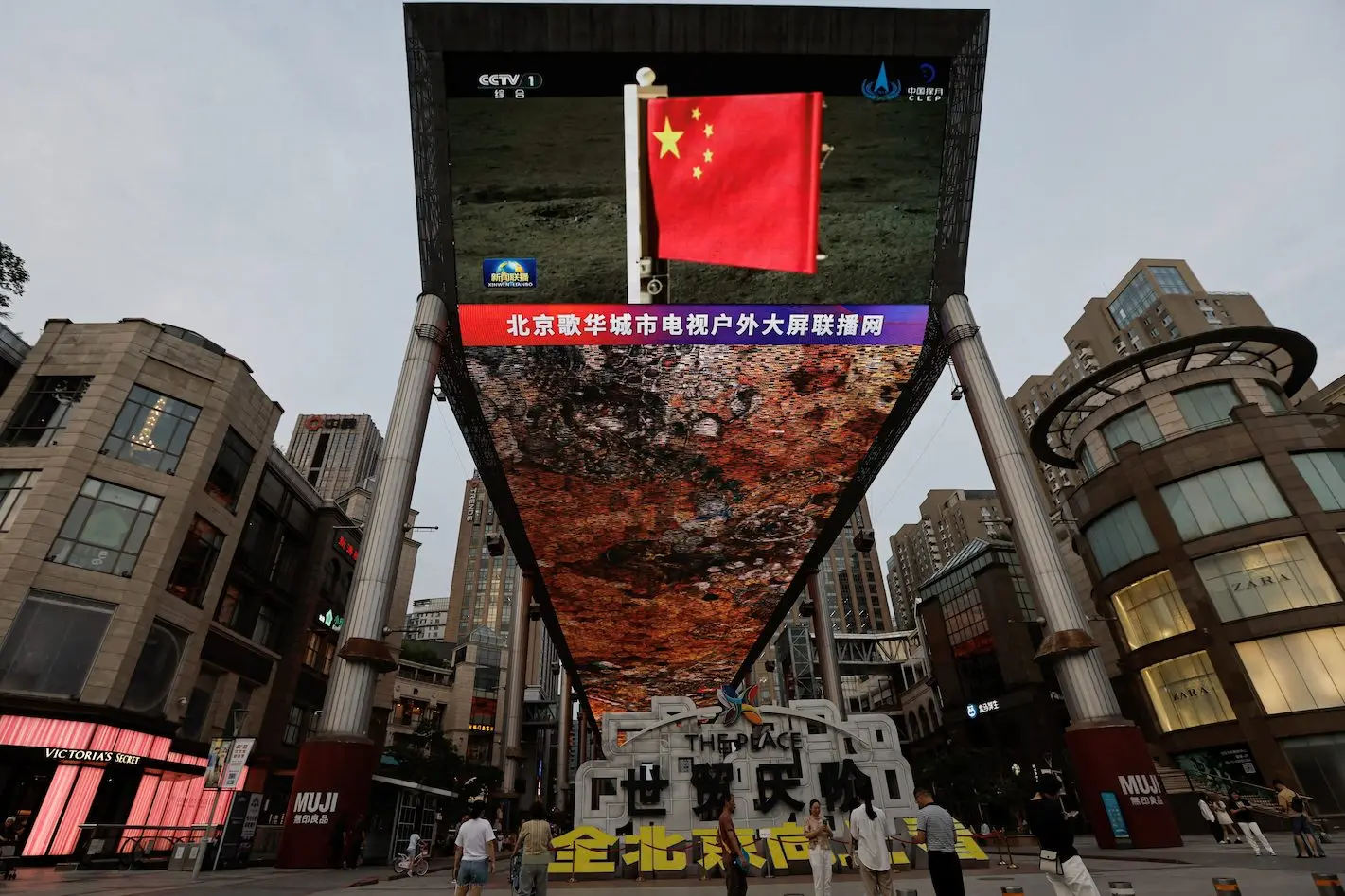
BEIJING, China – China’s Chang’e-6 lunar probe landed on Tuesday, June 25, in the northern Chinese region of Inner Mongolia, making the country the first to bring back samples from the moon’s far side.
The reentry capsule touched down at 2:07 p.m. Beijing time (0607 GMT), according to state broadcaster CCTV, carrying lunar soil collected earlier in the month by the probe after a successful landing on the moon’s South Pole-Aitken Basin, an impact crater on the side of the Moon that always faces away from Earth.
Soon after the capsule landed, Zhang Kejian, head of the China National Space Administration, announced the successful completion of the Chang’e-6 lunar mission. Chinese President Xi Jinping said the mission’s completion was a “landmark achievement” in China’s quest to become a space and scientific powerhouse.
The Chang’e-6 probe was launched on May 3 on a Long March 5 rocket from the Wenchang Satellite Launch Center on the southern island of Hainan. The samples will be transported by air to Beijing for analysis, according to CCTV.
While it is yet not known whether the planned 2kg of samples were successfully returned, whatever the amount, the samples will be closely analyzed by Chinese and foreign scientists, who believe that they will reveal new details about the formation of the Earth, moon, and solar system.
Samples from the Chang’e-5 mission, which brought back lunar samples from the near side of the moon, led to the discovery of new minerals and more accurate ranges for the moon’s geological age.
The success of the Chang’e-6 mission could give China’s lunar and space exploration program, already in close competition with the United States, greater pull among foreign governments and scientists.
China’s retrieval of samples from the moon’s far side comes as the exploration of lunar resources and the militarization of space are becoming increasingly pressing questions shaped by geopolitical tensions.
NASA administrator Bill Nelson this year expressed concern at China’s lunar exploration program and described an intensifying “space race” between the two superpowers.
“I’m glad there has been a resurgence in this (space) race, but of course I would like to see us racing alongside each other and together,” said Neil Melville-Kenney, a technical officer at the European Space Agency (ESA) who is working with Chinese researchers on one of the Chang’e-6 payloads.
As the European Union and China are at loggerheads over a wide range of geopolitical issues, from trade to the war in Ukraine, European space agencies and scientists are working closely with Chinese counterparts on data and samples collected by China’s lunar missions.
“We know that (the far side of the moon) is literally a different place, it is made of different materials than the near side of the moon, it has a different history… it’s really of fundamental scientific importance to get these samples back,” Melville-Kenney said.
The engineer added that the ESA will meet with the China National Space Administration in October to discuss further collaboration.
“This collaboration that we have at the moment (with China) is a small step, this was started quite a while ago, perhaps the situations were a little bit different then. Going forward I hope there will be more collaboration,” he added.
(Reporting by Eduardo Baptista; Editing by Jacqueline Wong and Gerry Doyle)